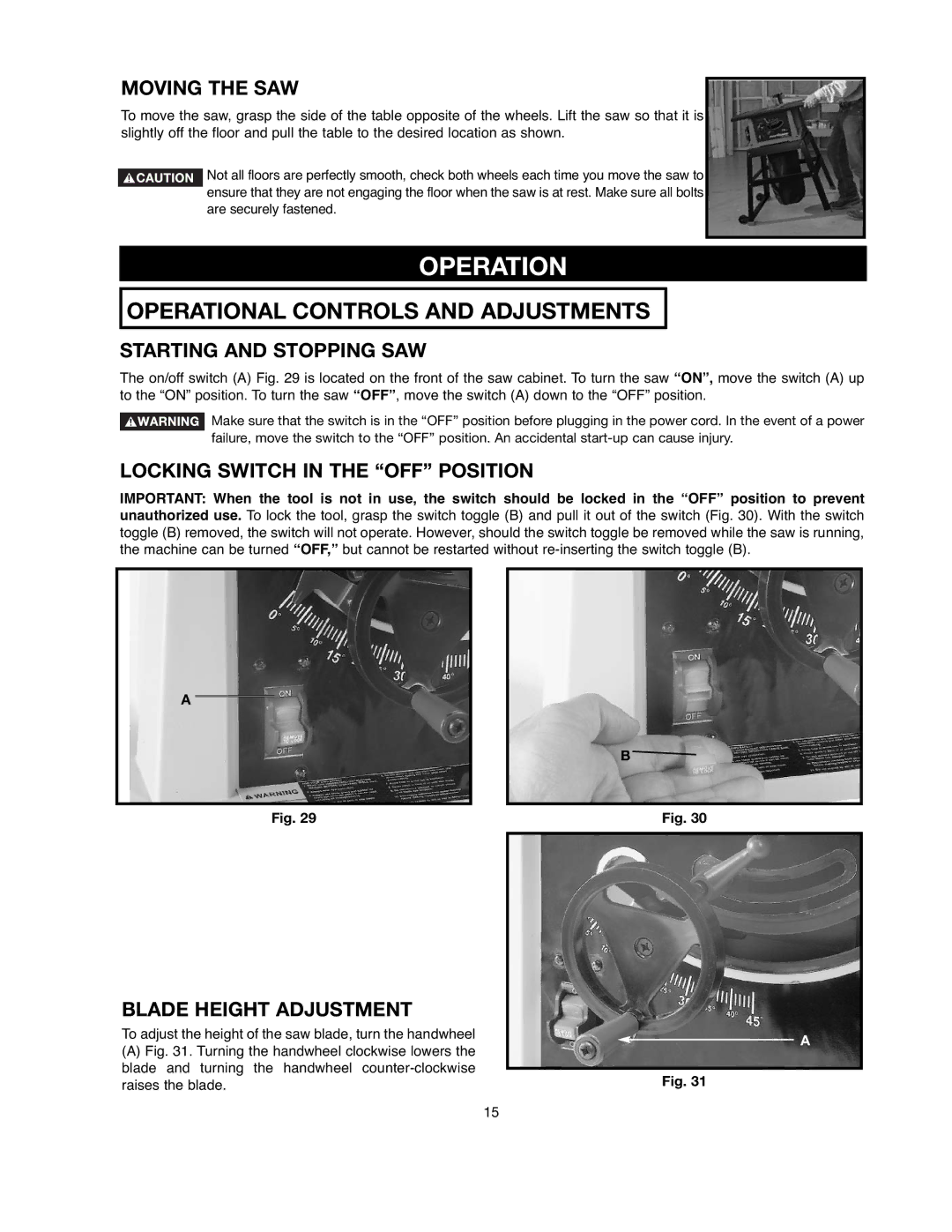
MOVING THE SAW
To move the saw, grasp the side of the table opposite of the wheels. Lift the saw so that it is slightly off the floor and pull the table to the desired location as shown.
![]() Not all floors are perfectly smooth, check both wheels each time you move the saw to ensure that they are not engaging the floor when the saw is at rest. Make sure all bolts are securely fastened.
Not all floors are perfectly smooth, check both wheels each time you move the saw to ensure that they are not engaging the floor when the saw is at rest. Make sure all bolts are securely fastened.
OPERATION
OPERATIONAL CONTROLS AND ADJUSTMENTS
STARTING AND STOPPING SAW
The on/off switch (A) Fig. 29 is located on the front of the saw cabinet. To turn the saw “ON”, move the switch (A) up to the “ON” position. To turn the saw “OFF”, move the switch (A) down to the “OFF” position.
![]() Make sure that the switch is in the “OFF” position before plugging in the power cord. In the event of a power failure, move the switch to the “OFF” position. An accidental
Make sure that the switch is in the “OFF” position before plugging in the power cord. In the event of a power failure, move the switch to the “OFF” position. An accidental
LOCKING SWITCH IN THE “OFF” POSITION
IMPORTANT: When the tool is not in use, the switch should be locked in the “OFF” position to prevent unauthorized use. To lock the tool, grasp the switch toggle (B) and pull it out of the switch (Fig. 30). With the switch toggle (B) removed, the switch will not operate. However, should the switch toggle be removed while the saw is running, the machine can be turned “OFF,” but cannot be restarted without
A
B ![]()
Fig. 29 | Fig. 30 |
BLADE HEIGHT ADJUSTMENT
To adjust the height of the saw blade, turn the handwheel
(A)Fig. 31. Turning the handwheel clockwise lowers the blade and turning the handwheel counter-clockwise raises the blade.
A
Fig. 31
15
